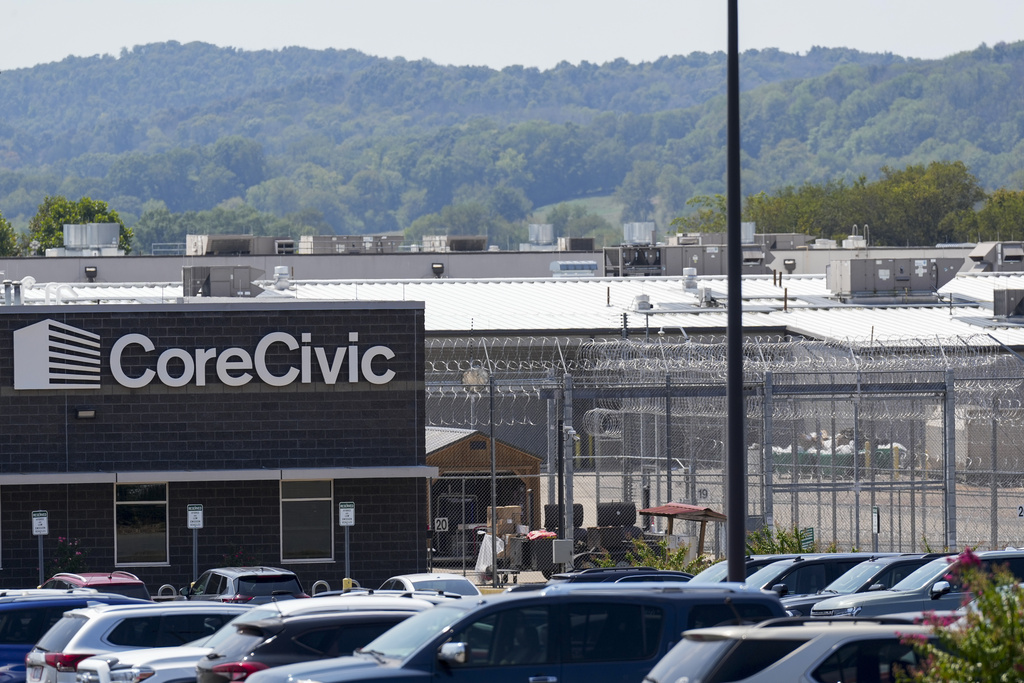A Nashville-based civil rights attorney has taken aim at a federal district court’s local rule that limits his discussion about issues in his prisoner-rights cases.
Daniel Horwitz, represented by the Institute for Justice, contends that he has had to refrain from numerous news-media interviews because of the chilling effects of the rule.
Horwitz has filed numerous lawsuits against CoreCivic, a private prison contractor for the state of Tennessee. In July 2022, Horwitz was ordered in federal district court to desist making comments to the press about CoreCivic. U.S. District Magistrate Judge Jeffrey Frensley threatened Horwitz with contempt if he continued to comment. Horwitz ceased talking to the press about CoreCivic cases.
But now, Horwitz is directly challenging the constitutionality of the underlying court rule, arguing it silences too much attorney speech.
The federal district court’s local rule 83.04 limits attorney speech on pending cases. The rule prohibits any lawyer from making extrajudicial statements that “the lawyer knows or reasonably should know will be disseminated and will have a substantial likelihood of materially prejudicing an adjudicative proceeding.”
The U.S. Supreme Court upheld a similar rule with the “substantial likelihood of materially prejudicing an adjudicative proceeding” in Gentile v. State Bar of Nevada (1991). However, the federal district court’s rule continues:
“Comments More Likely Than Not to Have Material Prejudicial Effect. Comment relating to the following matters is more likely than not to have a material prejudicial effect on a proceeding, and the burden is upon the person commenting upon such matters to show that the comment did not pose such a threat:
(A) Evidence regarding the occurrence or transaction involved;
(B) The character, credibility, or criminal record of a party, witness, or prospective witness; or
(C) The performance or results of any examinations or tests or the refusal or failure of a party to submit to an examination or test.
(D) Information that the lawyer knows or reasonably should know is likely to be inadmissible as evidence at trial or that would, if disclosed, create a substantial risk of prejudicing an impartial trial.”
This part of the rule places the burden on the attorney to show that comments in these areas are not prejudicial. In other words, the rule shifts the burden of proof from the government to the attorney seeking to speak.
“Rule 83.04 violates the First Amendment both facially and as applied to the things Mr. Horwitz would like to say about his cases against CoreCivic,” reads the complaint in Horwitz v. U.S. District Court for the Middle District of Tennessee.
Horwitz’s lawsuit challenges this aspect of the rule.
“Mr. Horwitz respectfully asks that this Court declare that Rule 83.04(a)(2)’s presumption of prejudice and burden-shifting provision are unconstitutional and enjoin the rule’s enforcement except when the party wishing to restrict his speech provides actual evidence that his statements are substantially likely to materially prejudice an impending trial,” the complaint reads. “Alternatively, he asks this Court to declare that Rule 83.04(a)(2) is void for vagueness.”
The lawsuit also emphasizes that an attorney often needs to communicate to the news media about litigation and the fact that such attorney speech is important for the public to receive information and ideas about matters of public concern.
For example, the complaint alleges that “[s]peaking publicly about his cases also vindicates the public’s right to know how its government operates and the ways in which the government and its contractors fall short of serving the public interest.”
“More than two years ago, Magistrate Judge Frensley ordered me to stop talking about CoreCivic and to delete my public statements calling on the Justice Department to step in and investigate Trousdale Turner,” Tennessee’s largest prison, Horwitz told the Free Speech Center.
“In August of this year, based on exactly what I had been talking about more than two years before, the Justice Department finally did open an investigation into Trousdale Turner. If Magistrate Frensley had not unconstitutionally silenced my speech and the speech of all other civil rights lawyers who sue CoreCivic in Middle Tennessee, it is fair to wonder whether the DOJ might have opened its investigation earlier, and whether some of the many people who have been murdered, raped, and stabbed at the facility since Magistrate Frensley entered his gag order could have been protected.”
David L. Hudson Jr. teaches First Amendment law and constitutional law classes at Belmont University College of Law. He is the author, co-author, or co-editor of more than 50 books, including The Constitution Explained: A Guide for Every American (Visible Ink Press, 2022) and The First Amendment: Freedom of Speech (Thomson Reuters, 2012).
The Free Speech Center newsletter offers a digest of First Amendment and news-media news every other week. Subscribe for free here: https://bit.ly/3kG9uiJ

